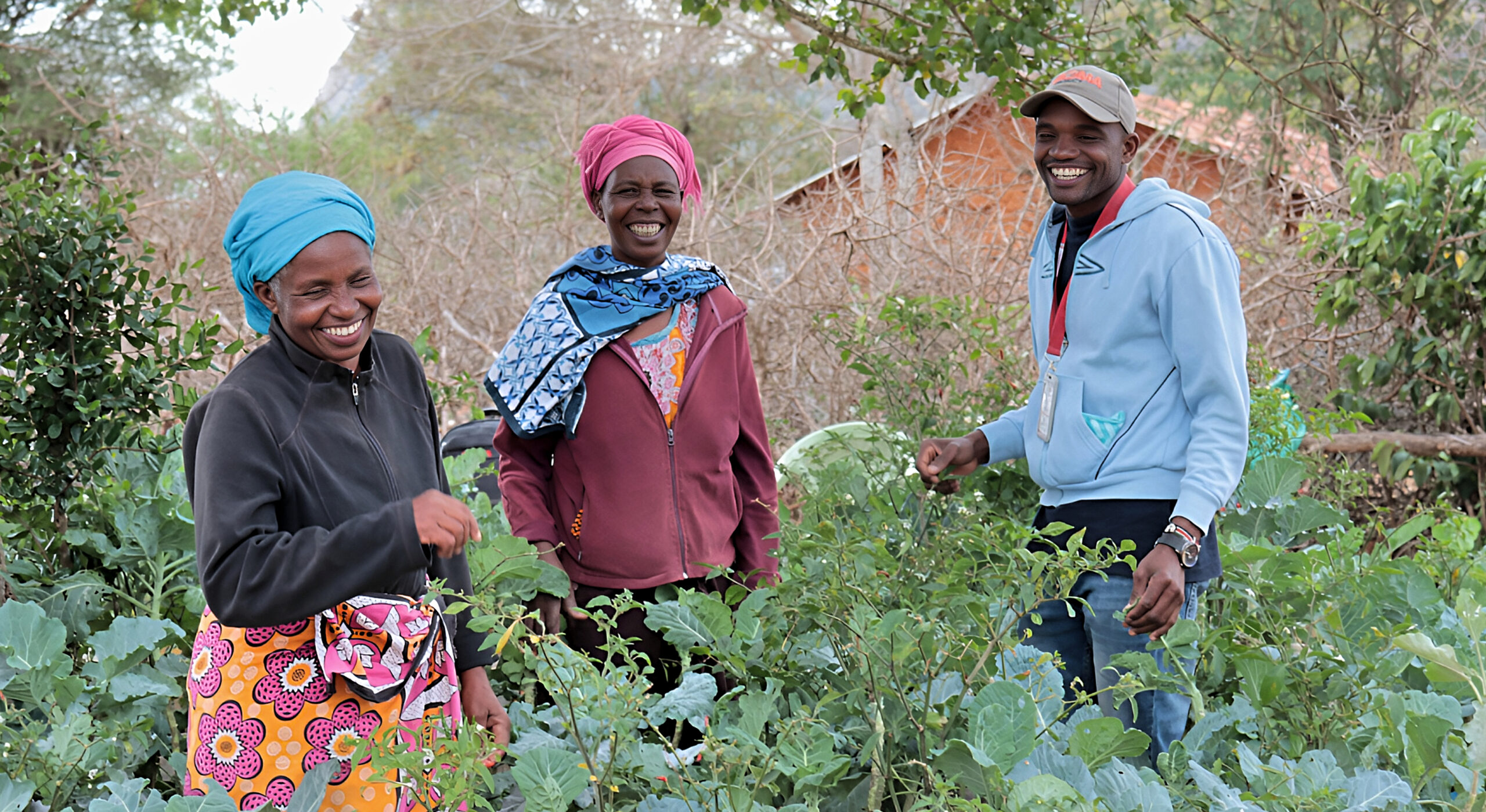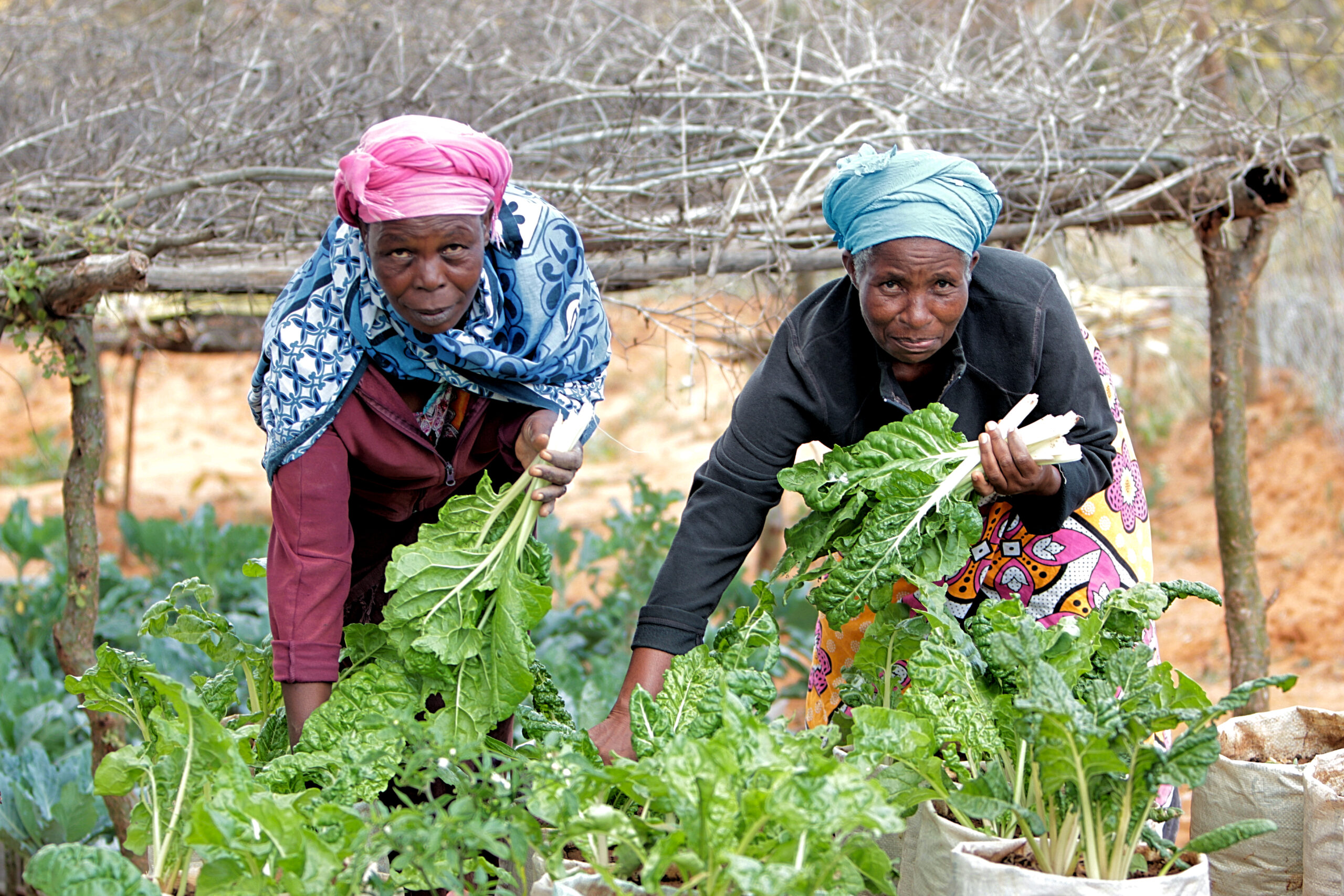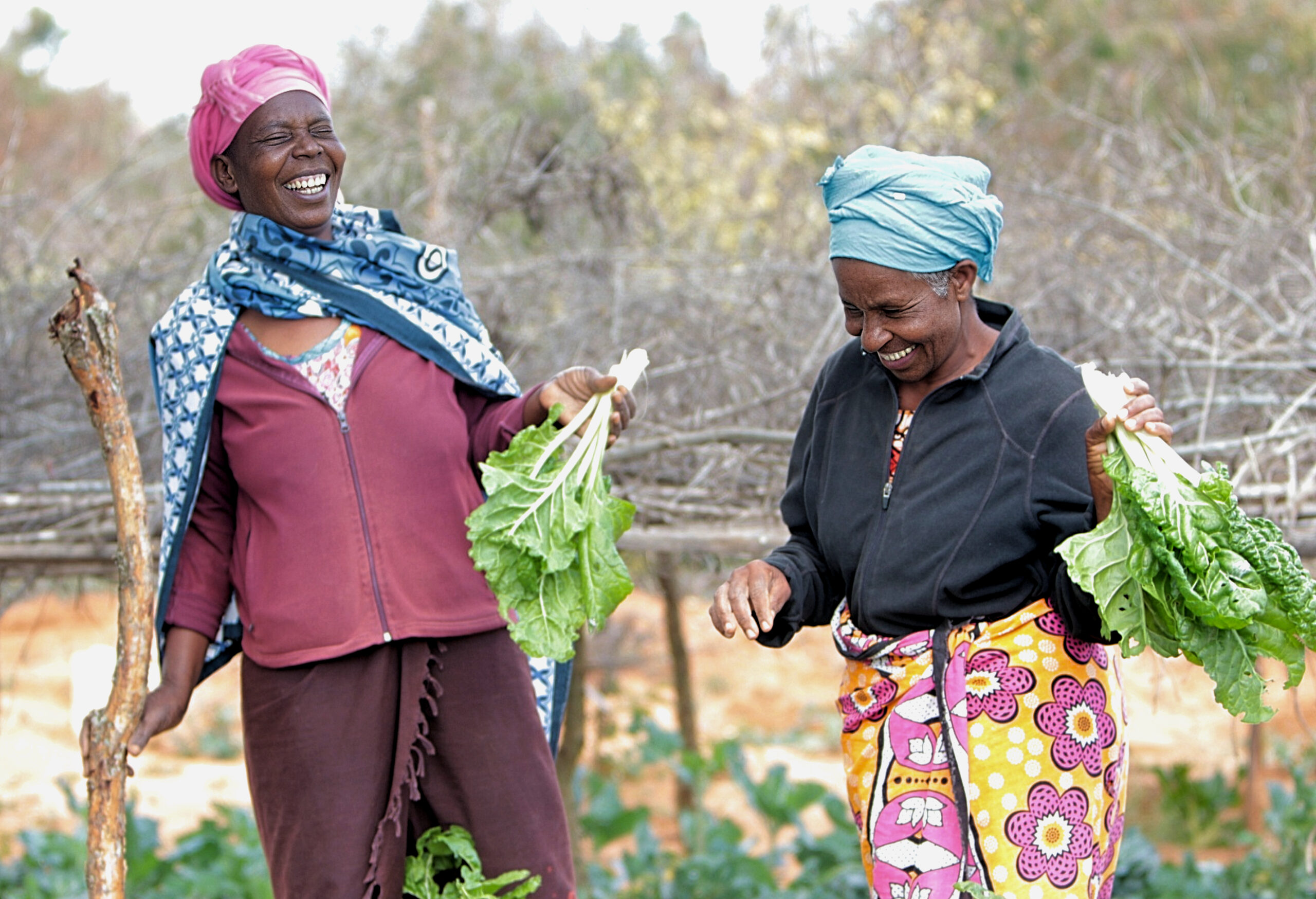Hope Grows Anew
KSEIP Participants Find Inclusion as Resilience Takes Root

The Kenya Social and Economic Inclusion Project (KSEIP) has restored a beacon of hope to the lives of two resolute widows, Angelica Ng’andu and Terezi Shali, in the vast and arid landscapes of Mwambote village in Taita Taveta, Kenya. KSEIP is a collaborative endeavor led by the Government of Kenya’s Department of Social Development (DSD) in the Ministry of Labour and Social Protection (MLSP) with partners Global Development Incubator (GDI), BOMA, and Village Enterprise which aims to embed the poverty graduation approach into Kenya’s social protection program.
Angelica and Terezi’s journey from hardship to prosperity exemplifies the power of resilience as well as the transformative impact of the KSEIP initiative.
Both women had faced several challenges in their life prior to their enrollment in KSEIP and thus the launch of their business. They have not forgotten the days of drought when they went to bed hungry and filled with desperation for better opportunities. Their wish became reality when they were selected to enroll in KSEIP, presenting them with the opportunity to build a better life for themselves and their families.
Angelica and Terezi embraced the vegetable business with steadfast determination, a familiar undertaking as both women had some farming experience. Guided by their mentor, Eugene Mwakio, they embarked on their journey to cultivate a variety of vegetables. This business held a promise of a brighter future, a chance to rise above their challenging circumstances.
Their journey was not without trials, however. Caterpillars devoured the group’s precious kale and pesky squirrels feasted on their capsicum, leaving the women of Lumweri Business Group ready to give up. Thankfully, the group’s members came together to persevere. The women sought advice from friends, tested various remedies, and finally found success using pepper and garlic, which eradicated the pests.
“There’s something about working as a team of two or three,” Angelica explained. “If I was alone, I would have given up.”
Water scarcity presented another formidable challenge. Every day, the women braved long distances to fetch water. During the drought, they were faced with the loss of their donkeys that once helped carry the water. With support from their mentor Eugene, Angelica and Terezi adapted to use wheelbarrows to collect the water that was essential to the success of their crops — and thus their business.
Throughout the ordeal, Lumweri Business Group found immense support in their families and community.
“If my daughter had not seen how much work we put into this project, she might not have seen the need to bring the water here,” Angelica said. “She did everything she could to ensure that I had water in my compound.”
“I am grateful to my friend’s daughter,” Angelica added. “She noticed that, given our ages, walking such a long distance is quite difficult.”
Lumweri Business Group has flourished as a result of their perseverance and hard work. Even when faced with caterpillar-infested crops, the community continued to rally behind them, purchasing their vegetables, nonetheless.
“They really gave us a great boost just when we had decided that everything was lost,” Angelica said. “We were about to give up and count our losses.”
Their profits gradually increased, allowing them to invest in a second water tank. Reflecting on their accomplishments, Angelica and Terezi radiate pride.
“My life has changed,” said Terezi. “I no longer sleep hungry, my grandchildren go to school, none of them have the fear of being sent home. As a widow, I am doing well.”
“I am proud because I never used to have water,” Angelica added. “Through this initiative by KSEIP, I managed to get water to my compound.”
Lumweri Business Group is motivated by a vision for the future for their grandkids, one in which their education opens the door to opportunities beyond their own reach.
“I never went to school, but I am hopeful that my grandchild will be able to complete his studies and get a good job,” Terezi said. “My hope for my grandkids is that they will study and go beyond where their mothers could. I want them to continue their education all the way to university.”
Angelica and Terezi’s journey from hardship to prosperity exemplifies the power of resilience as well as the transformative impact of the KSEIP initiative.
Both women had faced several challenges in their life prior to their enrollment in KSEIP and thus the launch of their business. They have not forgotten the days of drought when they went to bed hungry and filled with desperation for better opportunities. Their wish became reality when they were selected to enroll in KSEIP, presenting them with the opportunity to build a better life for themselves and their families.
Angelica and Terezi embraced the vegetable business with steadfast determination, a familiar undertaking as both women had some farming experience. Guided by their mentor, Eugene Mwakio, they embarked on their journey to cultivate a variety of vegetables. This business held a promise of a brighter future, a chance to rise above their challenging circumstances.
Their journey was not without trials, however. Caterpillars devoured the group’s precious kale and pesky squirrels feasted on their capsicum, leaving the women of Lumweri Business Group ready to give up. Thankfully, the group’s members came together to persevere. The women sought advice from friends, tested various remedies, and finally found success using pepper and garlic, which eradicated the pests.
“There’s something about working as a team of two or three,” Angelica explained. “If I was alone, I would have given up.”
Water scarcity presented another formidable challenge. Every day, the women braved long distances to fetch water. During the drought, they were faced with the loss of their donkeys that once helped carry the water. With support from their mentor Eugene, Angelica and Terezi adapted to use wheelbarrows to collect the water that was essential to the success of their crops — and thus their business.



